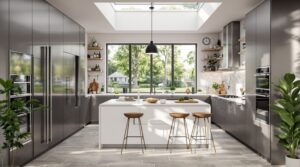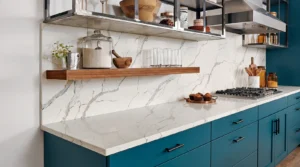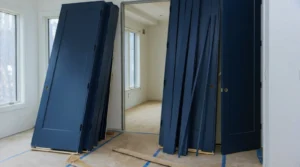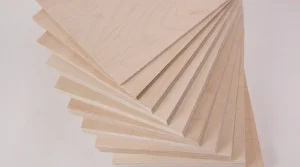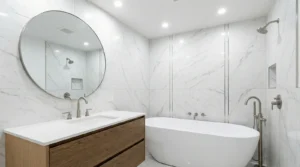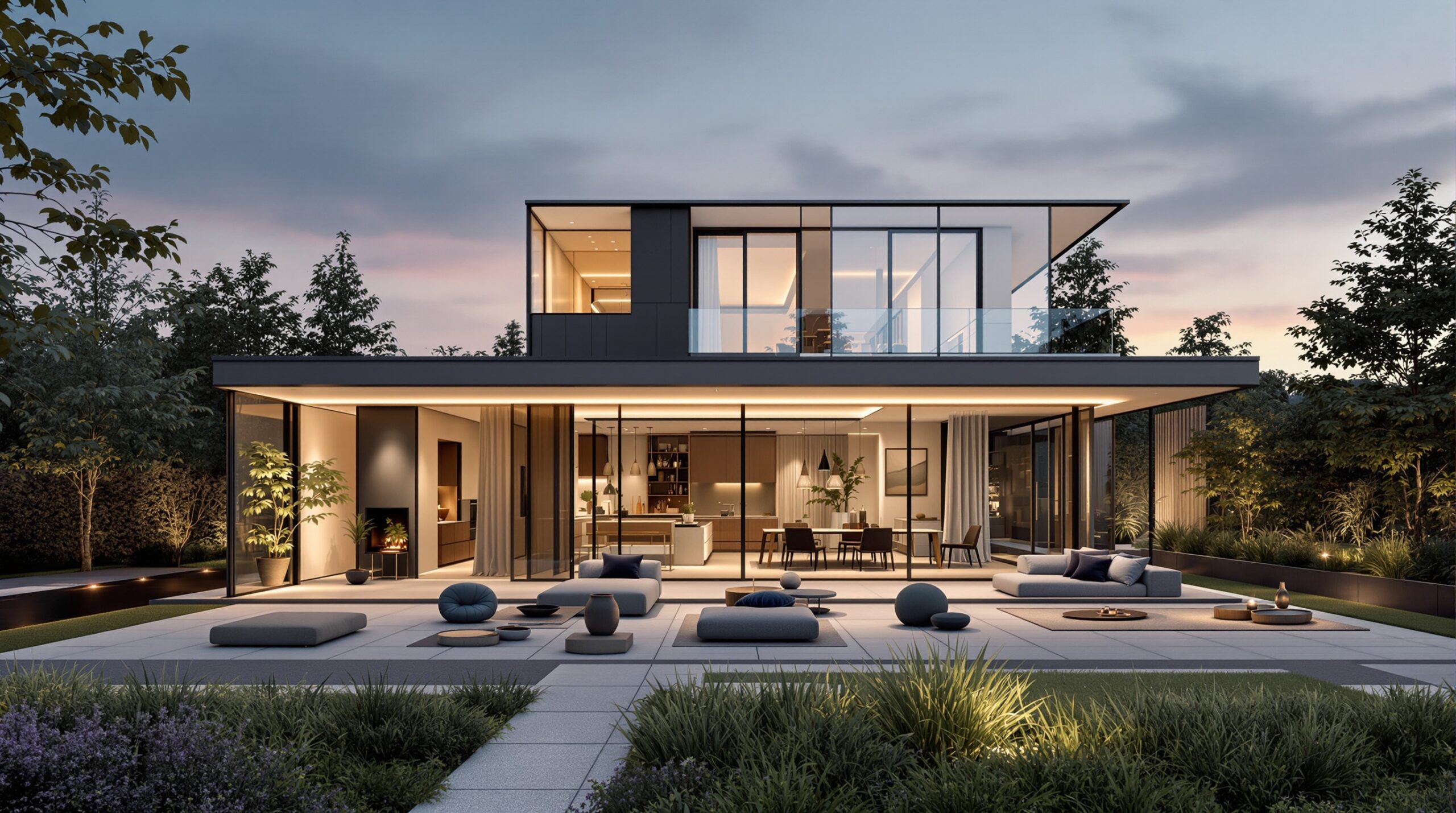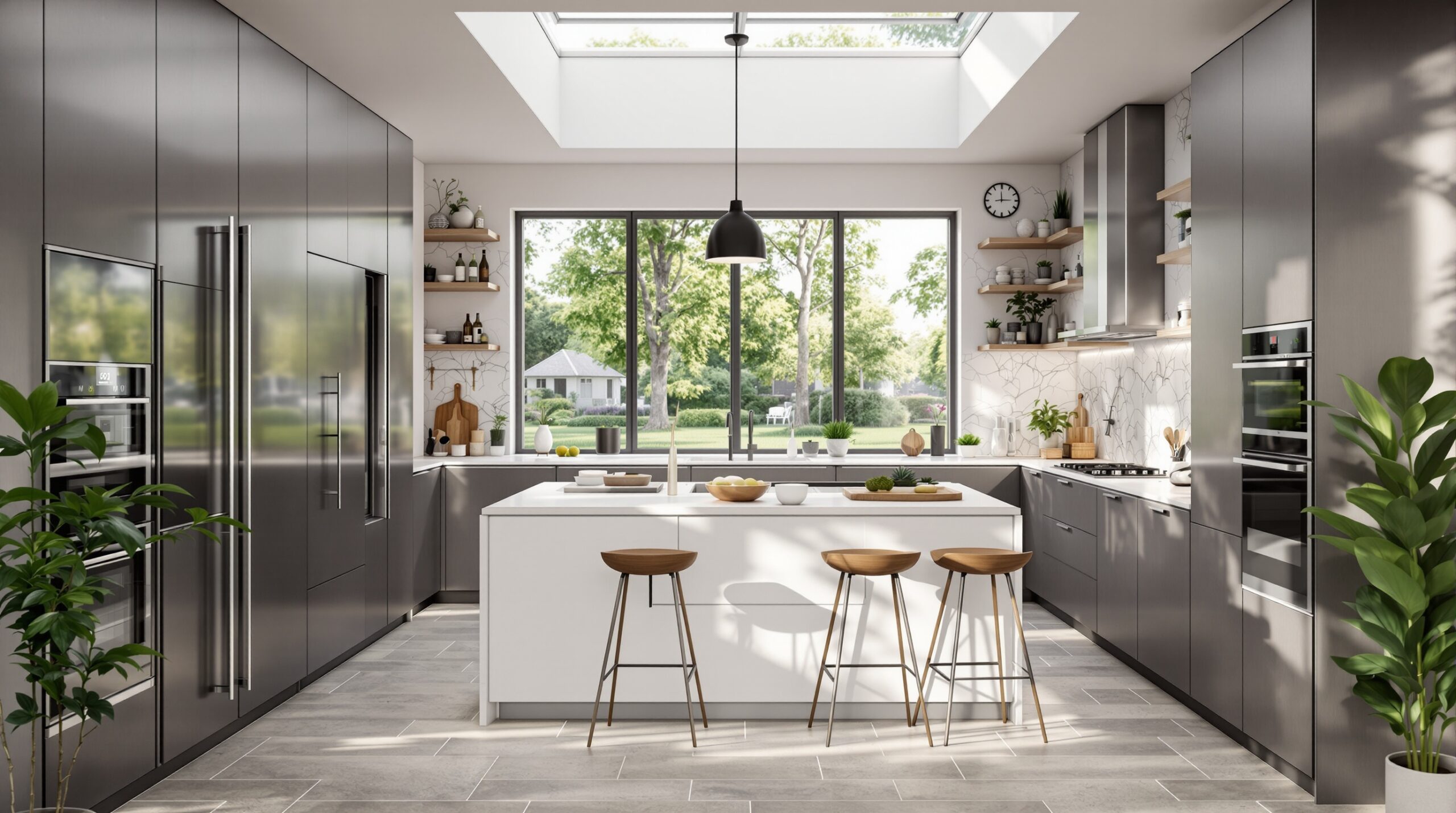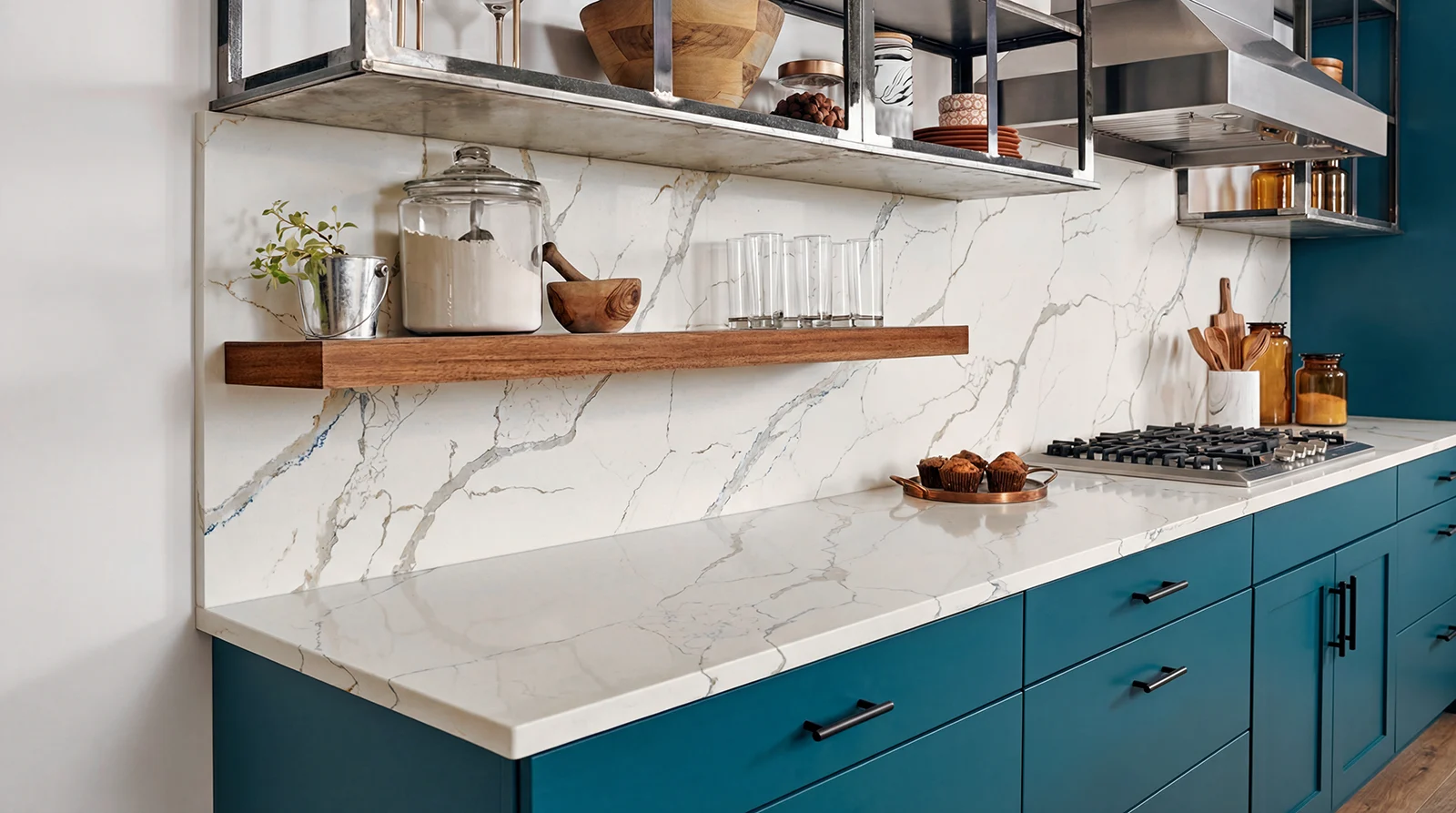Water Conservation in Home Renovation: Eco-Friendly Solutions that Save You Money
Introduction
In the Netherlands, where environmental sustainability is a top priority, home renovation projects are increasingly focusing on eco-friendly solutions. One of the critical aspects of these sustainable renovations is water conservation. This article will delve into the importance of water conservation in home renovations, highlighting the eco-friendly solutions that not only benefit the environment but also save homeowners money.
Basic Concepts
Before diving into the specifics of water conservation, it’s essential to understand some key concepts:
- Eco-Friendly Construction: This involves using sustainable materials, practices, and technologies to minimize the environmental impact of a building.
- Green Building: This refers to the design, construction, and operation of buildings in a way that reduces their environmental footprint.
- Water Conservation: This is the practice of using water more efficiently to reduce waste and protect this vital resource.
The Importance of Water Conservation in Home Renovations
Water conservation is crucial for several reasons:
Environmental Impact
Water conservation helps reduce the depletion of natural resources and minimizes the strain on water treatment facilities. In the Netherlands, where water management is a significant concern due to the country’s geography, conserving water is essential for maintaining ecological balance.
Financial Savings
Implementing water-saving measures can significantly reduce water bills. With the increasing costs of water and the potential for future price rises, water conservation is a financially savvy decision for homeowners.
Compliance with Regulations
The Dutch government has introduced various regulations and incentives to encourage water conservation. For instance, the new BREEAM International 2020 version places a greater emphasis on water conservation, making it a necessity for achieving higher BREEAM ratings.
Eco-Friendly Solutions for Water Conservation
Here are some effective eco-friendly solutions for water conservation in home renovations:
Low-Flow Fixtures
- Low-Flow Faucets: Installing low-flow faucets can reduce water usage without compromising performance.
- Low-Flow Showerheads: These showerheads use less water while maintaining a satisfying shower experience.
- Low-Flow Toilets: Dual-flush toilets and toilets with low water per flush rates are highly effective in reducing water consumption.
Rainwater Harvesting
- Rainwater Collection Systems: These systems collect and store rainwater for non-potable uses such as irrigation, toilet flushing, and washing machines.
- Greywater Systems: Greywater systems recycle water from sinks, showers, and laundry for use in landscaping and toilet flushing.
Efficient Landscaping
- Drought-Resistant Plants: Choosing plants that require less water can significantly reduce water consumption in gardens.
- Efficient Irrigation Systems: Using drip irrigation or smart irrigation systems that adjust water output based on weather conditions can optimize water use.
Case Studies: Successful Water Conservation in Dutch Buildings
Several buildings in the Netherlands serve as exemplary models for water conservation:
The NOW Building in Hoofddorp
- This building features water-efficient sanitary facilities, appliances, and fixtures.
- It uses rainwater for flushing toilets and has a green roof that collects and buffers rainwater, minimizing runoff and alleviating pressure on sewerage treatment during extreme downpours.
Venlo Town Hall
- This building incorporates a cradle-to-cradle design, which includes the reuse of old materials and the implementation of water management strategies.
- It uses solar panels for energy generation and has a system for collecting and reusing rainwater for non-potable purposes.
Renewable Energy and Water Conservation
While renewable energy sources are primarily associated with reducing energy consumption, they also play a role in water conservation:
Solar Energy
- Solar panels can power water pumps and other water management systems, reducing the energy needed for water treatment and distribution.
- Solar water heaters use the sun’s energy to heat water, reducing the overall energy consumption of the home.
Geothermal Energy
- Geothermal systems use the earth’s stable temperature to heat and cool homes efficiently, which can also reduce the energy needed for water heating.
Practical Tips for Homeowners
Here are some practical tips for homeowners looking to incorporate water conservation into their renovation projects:
- Assess Your Current Water Usage:
- Understand where and how you are using water in your home to identify areas for improvement.
- Choose the Right Fixtures:
- Opt for low-flow fixtures and appliances that are certified for water efficiency.
- Install Rainwater Harvesting Systems:
- Consider the space and resources needed for a rainwater harvesting system and ensure it is properly maintained.
- Select Drought-Resistant Plants:
- Choose plants that are adapted to the local climate and require less watering.
- Regular Maintenance:
- Regularly check for leaks and ensure that all water-saving systems are functioning correctly.
Conclusion
Water conservation is a critical component of eco-friendly home renovations in the Netherlands. By implementing low-flow fixtures, rainwater harvesting systems, efficient landscaping, and integrating renewable energy sources, homeowners can significantly reduce their water consumption. These measures not only contribute to environmental sustainability but also offer long-term financial savings and compliance with regulatory standards. As the Netherlands continues to lead in sustainable architecture and green building practices, incorporating water conservation into home renovations is a step towards a more sustainable future.
Table: Key Features of Water Conservation in Dutch Buildings
| Feature | Description | Benefits |
|---|---|---|
| Low-Flow Fixtures | Low-flow faucets, showerheads, and toilets | Reduces water usage, lowers water bills |
| Rainwater Harvesting | Collects and stores rainwater for non-potable uses | Conserves potable water, reduces stormwater runoff |
| Efficient Landscaping | Drought-resistant plants, efficient irrigation systems | Reduces water consumption in gardens |
| Greywater Systems | Recycles water from sinks, showers, and laundry | Reduces water consumption, lowers water bills |
| Solar Energy | Powers water pumps and water heating systems | Reduces energy consumption for water treatment and heating |
| Geothermal Energy | Uses earth’s temperature for heating and cooling | Reduces energy needed for water heating |
By embracing these eco-friendly solutions, homeowners in the Netherlands can make a significant impact on water conservation while enjoying the financial and environmental benefits that come with sustainable living.



